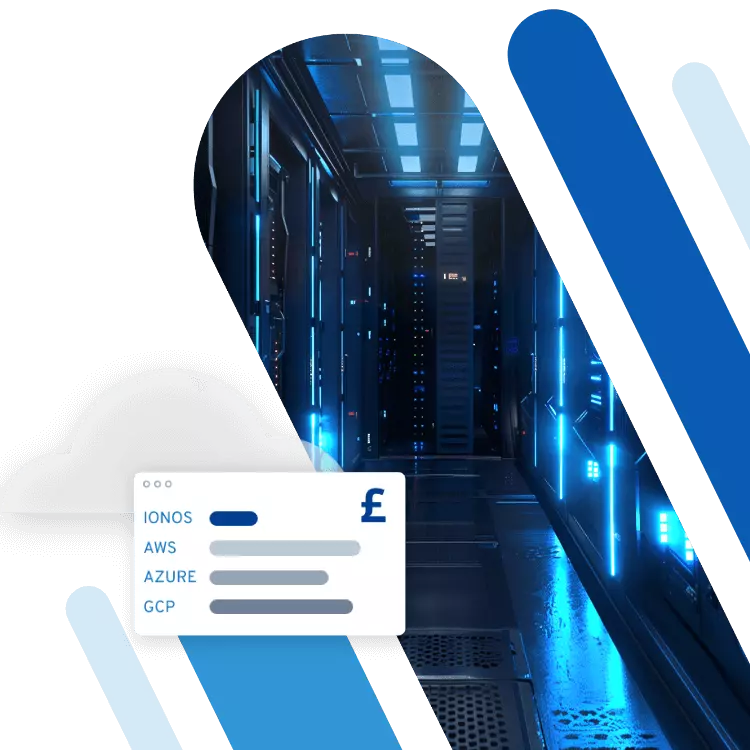Which database is best? MongoDB vs Cassandra comparison
A comparison between MongoDB vs Cassandra shows many similarities. Nevertheless, both are best suited for different purposes. MongoDB’s optimal scalability is convincing, while the better availability is the main argument in favour of Cassandra.
MongoDB vs Cassandra: Two of the most successful NoSQL databases
MongoDB and Cassandra are two of the most important NoSQL databases. They are used by numerous well-known and successful companies and also provide great services for users with smaller requirements.
With the emergence of ever larger and more diverse data volumes, distributed database management systems and NoSQL databases have become increasingly important. These non-relational solutions impress with high scalability on the one hand and high reliability on the other. If the volume of data increases, these systems simply grow with it and still retain their clear structure.
MongoDB relies on collections and documents
Before we look at MongoDB vs Cassandra in detail and compare them, it is worth taking a look at the highlights of MongoDB. The name of this system is derived from the English ‘huMONGOus’ (meaning gigantic). The database was developed in 2009 by the company 10gen (now MongoDB, Inc.) and is still distributed today under the proprietary Server Side Public License. It is written in C++ and stores data in collections and documents. MongoDB, which is available in a free community version and a proprietary enterprise version, is one of the most successful databases in the world.
A NoSQL database tailored to your needs. Choose Managed MongoDB from IONOS and benefit from maximum scalability, comprehensive data analysis and the optimal hardware for your workload. Find the right package for your needs now!
Cassandra: The column-oriented solution
Even if MongoDB and Cassandra differ in many respects, at least their respective first releases are close to each other. Cassandra was released in 2008, but was still developed exclusively for Facebook at the time. In 2009, the Apache Software Foundation took over work on the cross-platform, column-oriented NoSQL database management system, programmed in Java.
In addition to the inventors Avinash Lakshman and Prashant Malik, companies such as DataStax, IBM and Twitter were also involved in the development of Cassandra. Today, the system is distributed under the Apache license and is available in a free version as well as several paid versions. Cassandra is one of the most popular column-oriented databases in the world.
Purpose and scalability
Both options are particularly suitable for processing especially large data collections and rely on the NoSQL approach. This means that both can also handle unstructured data volumes, as they operate independently of tables and rely on different nodes instead. This in turn increases the scalability of both solutions. Compared to their SQL competitors, the two systems are therefore ideal for companies that need to deal with large volumes of data from the outset, as well as for companies whose requirements are perhaps not yet foreseeable at the beginning and will increase over time.
MongoDB is the best choice if you need to deal with mostly unstructured data. Although both systems are suitable for this work, the flexibility of MongoDB ensures that this database is a little easier to scale. Cassandra also offers flexibility, but as its structure is at least similar to the SQL style, this system is somewhat easier to switch to NoSQL. Cassandra uses CQL, a query language that is similar to traditional databases. In a direct comparison of MongoDB vs Cassandra, MongoDB lags behind in this area with a stand-alone query that must initially be learned.
The ideal platform for demanding, highly scalable container applications. Managed Kubernetes works with many cloud-native solutions and includes 24/7 expert support.
The approaches of MongoDB vs Cassandra
Although MongoDB and Cassandra pursue similar goals, their respective approaches are fundamentally different. MongoDB stores its data in documents that are created in collections. Each document is made up of key-value pairs. The keys are basically character strings. Values can be boolean values, data, other documents, numbers or strings. In contrast, Cassandra works column-oriented (in Sorted String Tables) and partitions based on rows. An SSTable like this cannot be changed subsequently. It contains a sorted set of the respective key-value pairs. Although Cassandra is considered a NoSQL database, its approach is ‘Not only SQL’. The Cassandra Query Language is much more flexible.
Data models
The fact that MongoDB nevertheless offers somewhat greater flexibility is particularly evident when comparing the data models of MongoDB and Cassandra. MongoDB does not require an actual schema and uses the JSON-like BSON format. An employee register could look like this, for example:
Employees: [
{
Employee_ID: "1",
Name: "Maria Johnson",
City: "Wolverhampton"
},
{
Employee_ID: "2"
Area: "IT"
Email: sbrown@example.com
}]In contrast, Cassandra relies on tables that can be classically divided into rows and columns. The data is saved as key-value pairs. The comparable employee register would look something like this:
Employee_ID 1 Column - Name Column - City
Value - Maria Johnson Value - Wolverhampton
Employee_ID 2 Column - Name Column - Area Column - Email
Value – Simon Brown Value - IT Value - sbrown@example.comAvailability
The comparison of MongoDB vs Cassandra also shows similarities and differences in terms of the availability of their stored data. Both systems secure the data by distributing the load across different server nodes. MongoDB, however, relies on only one primary node, which is replicated in order to be prepared for possible failures. All write operations are routed to this node and then passed on from there to its replicas. If the master node fails, another one takes over. In Cassandra, however, it is possible to set up several master nodes with the appropriate infrastructure. If one or more fail, the replacement is always ready.
Compatibility and programming languages
Both Cassandra and MongoDB are compatible with several server operating systems. Both run on Linux, macOS and Windows. Cassandra also offers support for BSD and MongoDB for Solaris.
The following programming languages are supported by the two database management solutions:
| Programming language | Supported by Mongo DB | Supported by Cassandra |
|---|---|---|
| Actionscript | ||
| C | ||
| C# | ||
| C++ | ||
| Clojure | ||
| ColdFusion | ||
| D | ||
| Dart | ||
| Delphi | ||
| Erlang | ||
| Go | ||
| Groovy | ||
| Haskell | ||
| Java | ||
| JavaScript | ||
| Kotlin | ||
| Lisp | ||
| Lua | ||
| MatLab | ||
| Perl | ||
| PHP | ||
| PowerShell | ||
| Prolog | ||
| Python | ||
| R | ||
| Ruby | ||
| Scala | ||
| Smalltalk | ||
| Swift |
Security
In the respective basic version, the security of MongoDB and Cassandra is primarily in the hands of the users. In addition to SSL or TLS for client connections and user authentication, advanced measures such as a suitable firewall are required. Commercial solutions such as MongoDB Atlas, on the other hand, offer extensive security features such as X.509, encryption on the client and server side as well as Kerberos and LDAP integration.
Mobile use
There are no special versions of Cassandra that are designed for mobile use. Tools for (further) development on smartphones are also not available. In comparison MongoDB vs Cassandra, MongoDB has more options for mobile use. Realm is a database management system from MongoDB that is specially designed for mobile operating systems. The paid version Atlas also offers solutions for mobile use.
Which companies use MongoDB or Cassandra?
Even though there are numerous differences in the MongoDB vs Cassandra comparison, the lists of companies that rely on one of the two solutions are equally impressive. The best-known companies that use MongoDB include the following:
- Adobe
- Amadeus
- AppScale
- Craftbase
- Disney
- Etsy
- Foursquare
- Lyft
- MTV
- The New York Times
- Via Varejo
The companies that use Cassandra are also extremely prominent. Although Facebook and Meta no longer rely on this database’s services, the following companies are on board:
- Apple
- Discord
- Digg
- Hulu
- Intuit
- Netflix
- Spotify
- X (formerly Twitter)
In our Digital Guide you will find many more articles on the topic of databases. For example, we compare MariaDB vs MySQL, introduce you to the best open source databases and help you get started with MongoDB.

